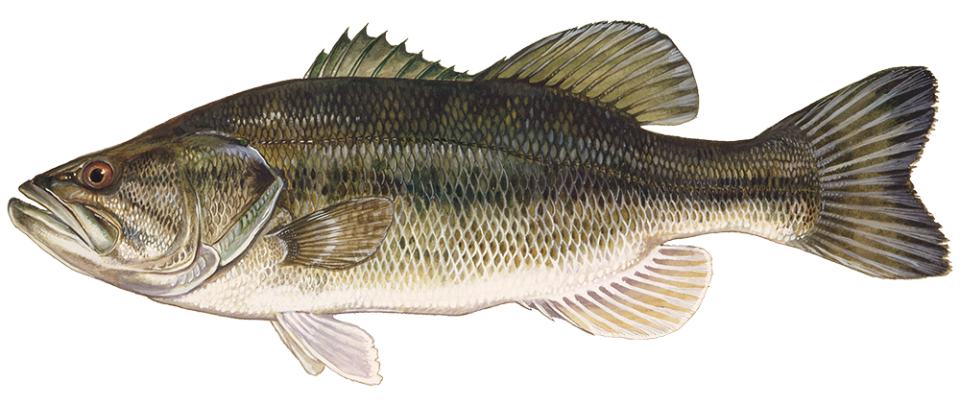Largemouth bass in most of state now called 'Florida bass,' a 'distinct' species
Step aside, Florida man. We now have an official Florida bass.
The largemouth bass in most of Florida, the state's most popular freshwater game fish, has officially been declared a separate species from other largemouth bass, according to a release last week from the Florida Fish & Wildlife Conservation Commission.
In 2022, researchers at Yale University used advanced genetic analysis to determine that Florida bass are not only "a distinct species" but are also spread further than expected into parts of Georgia, South Carolina and North Carolina. The American Fisheries Society has now established it as a separate species.
The previous scientific name for largemouth bass, Micropterus salmoides, is now the name for Florida bass. Largemouth bass are now Micropterus nigricans.

Isn't there already a Florida bass?
The Florida bass was named in 1822 by naturalist Charles Alexandre Lesueur, but it was believed to be a subspecies of the largemouth bass and limited to eastern Florida. The study found that it is a separate species and much more widespread than originally thought.
How will this affect bass fishing in Florida?
Not at all, really. It just means the name will be changed in news releases, articles, regulations and signs in most of Florida excluding the western Panhandle.
Does this affect TrophyCatch?
No. Florida bass and largemouth bass are still accepted into the program.
TrophyCatch is a largemouth bass conservation program in Florida designed to promote the responsible catch, documentation and release of trophy-size bass while rewarding anglers for their contributions to fisheries research and management.
What's the difference between a Florida bass and a largemouth bass?
Only genetics. You can't tell by sight, the FWC said, and regulations will be the same for both species throughout Florida.
So why does this matter?
"Understanding and conserving fish species is crucial for sustainable recreational fishing and biodiversity preservation. The classification of species plays a key role in these efforts," the FWC said,
"Black basses (Micropterus spp.) are well-known freshwater fish and highly popular for recreational fishing. This new understanding of black bass diversity, distribution, and classification provides a critical foundation for better managing and conserving these important and iconic fish. It will aid in ensuring their continued conservation and sustainable use for future generations."
This article originally appeared on The Daytona Beach News-Journal: 'Florida bass' found to be distinct species from largemouth bass

